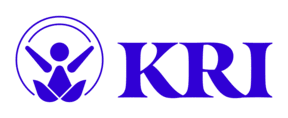In a world increasingly besieged by stressors and ailments, the pursuit of holistic well-being has never been more relevant. Recent findings from the National Institutes of Health’s National Center for Complementary and Integrative Health (NCCIH) shed light on a notable uptick in the use of complementary health approaches, particularly for pain management.
The NCCIH analysis highlights a significant rise in the adoption of complementary health practices, including yoga, meditation, massage therapy, chiropractic care, acupuncture, naturopathy, and guided imagery/progressive muscle relaxation.
The percentage of individuals who reported using at least one of the seven approaches increased from 19.2% in 2002 to 36.7% in 2022, also revealing U.S. adults are more likely to use complementary health approaches specifically for managing pain.
Yoga and meditation experienced the most significant growth from 2002 to 2022: yoga increased from 5% in 2002 to 15.8% in 2022; and meditation became the most used complementary health approach in 2022, with an increase from 7.5% in 2002 to 17.3% in 2022.
The use of acupuncture, increasingly covered by insurance, saw an increase from 1% in 2002 to 2.2% in 2022. The complementary health approach with the highest use for pain management was chiropractic (85.7% in 2022).
These findings reveal these approaches are not merely alternatives but are increasingly recognized as integral components of a balanced wellness regimen. At the heart of this surge lies a profound shift in mindset—a departure from conventional, symptom or pill-centric treatments towards holistic, patient-centered care.
At the Kundalini Research Institute, we applaud this research which enriches our understanding of the landscape of holistic wellness and complementary health practices.
If research on Kundalini Yoga and its therapeutic applications is of interest, then consider watching the Symposium on Kundalini Yoga: Scientific Research and Applications for Health and Therapy. In these recorded sessions, you will dive deep into scientific research, clinical and special populations applications for Kundalini Yoga teachers, therapists and healthcare workers. The conference program includes oral presentations and facilitated workshops on specific topics by the world’s leading experts on Kundalini Yoga research and therapeutic applications. The recorded event is available in several different languages with automatically generated subtitles. Click here to find out more.
